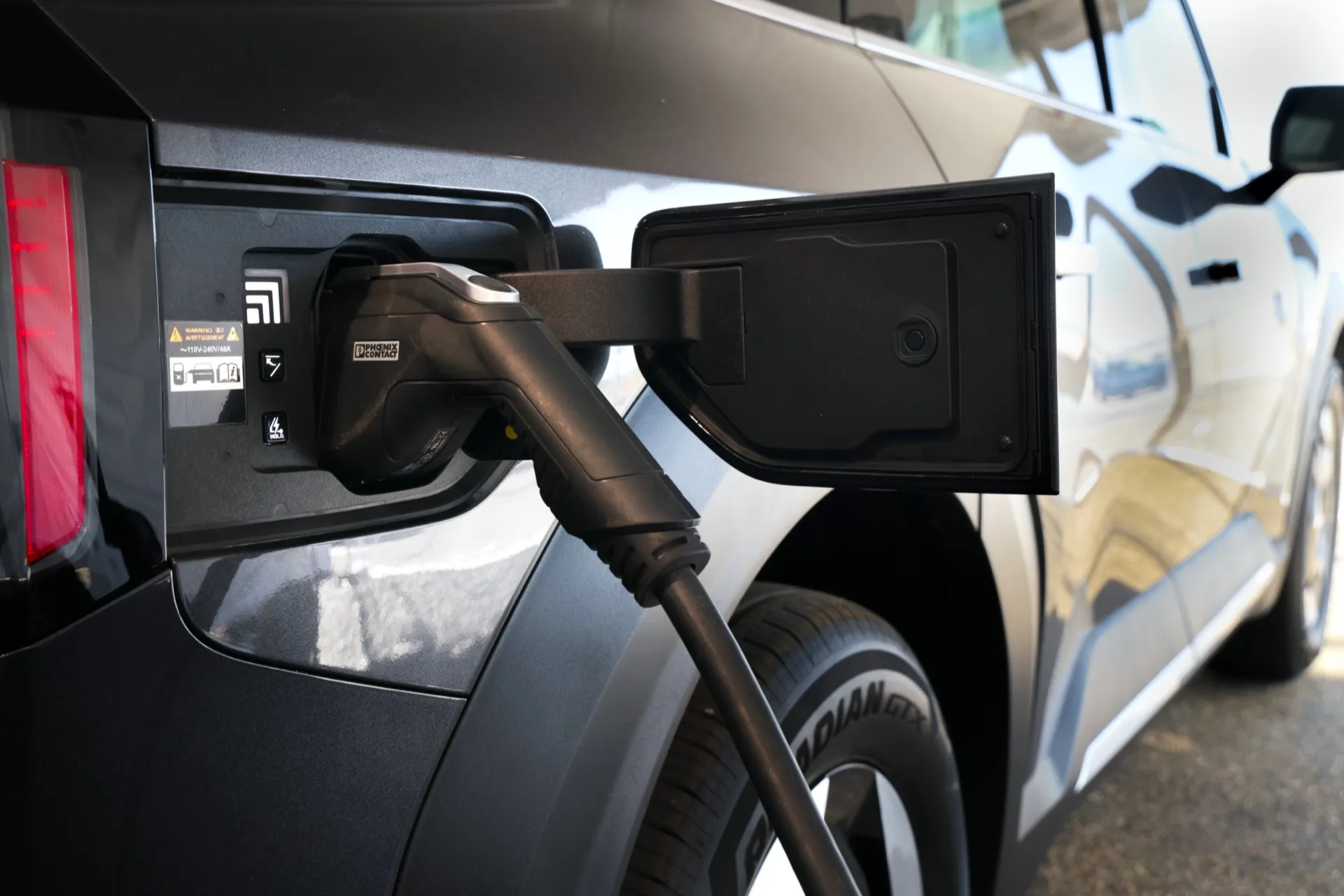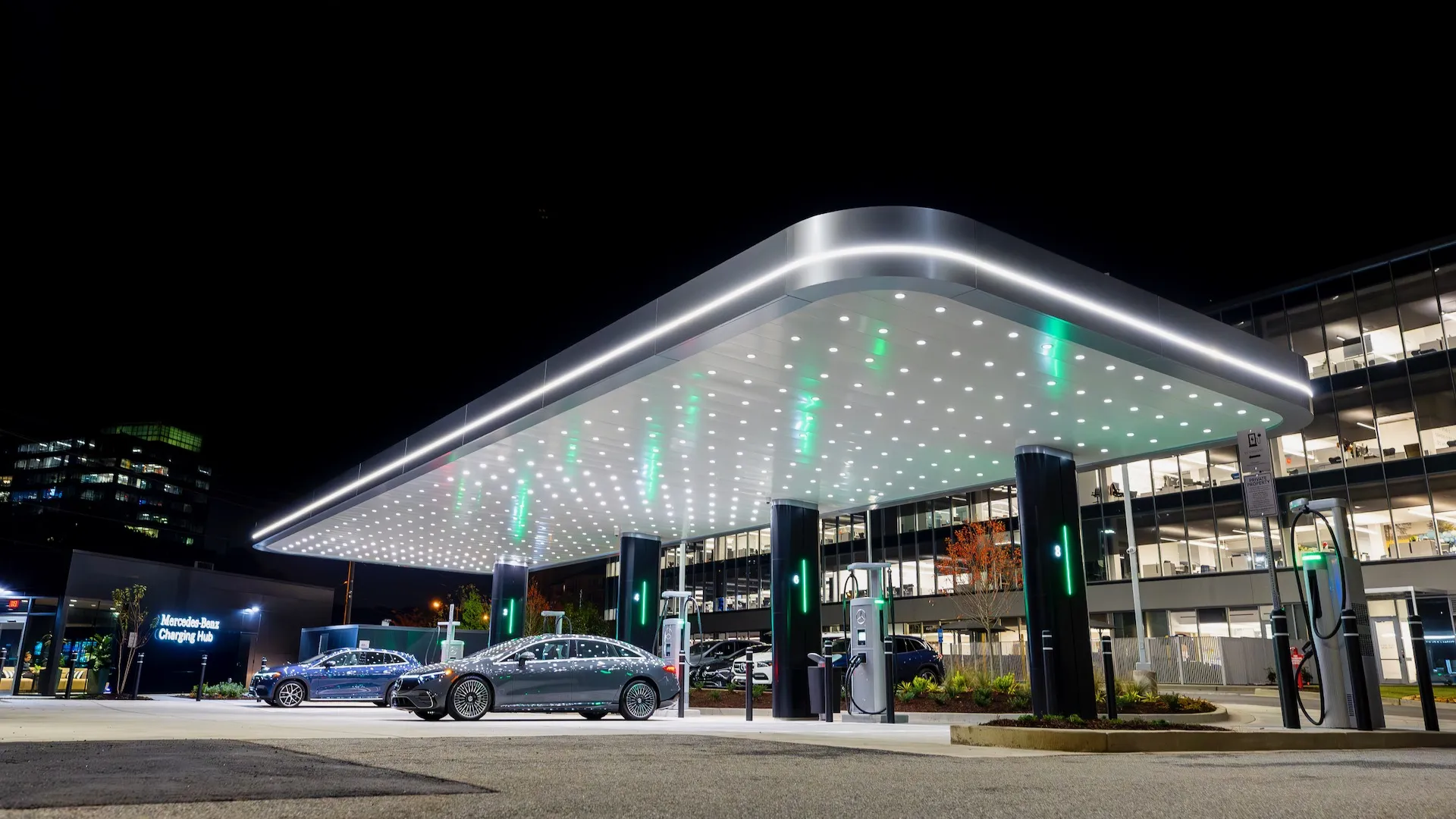The Kia EV9 electric SUV is shaping up to be one of the most important EVs yet for North America. That’s partly because it takes a shape and size that lands right in the midst of the U.S. family vehicle market, and in at least some forms lays down the promise of 300 miles of range.
But it’s also because the EV9 promises to help make the most of bidirectional charging functionality engineered into the E-GMP platform it’s built on.
Kia recently confirmed that Wallbox will provide the first EV charger enabling bidirectional charging with the EV9, and beyond that, detailed how it would work to Green Car Reports, with representatives from Wallbox.
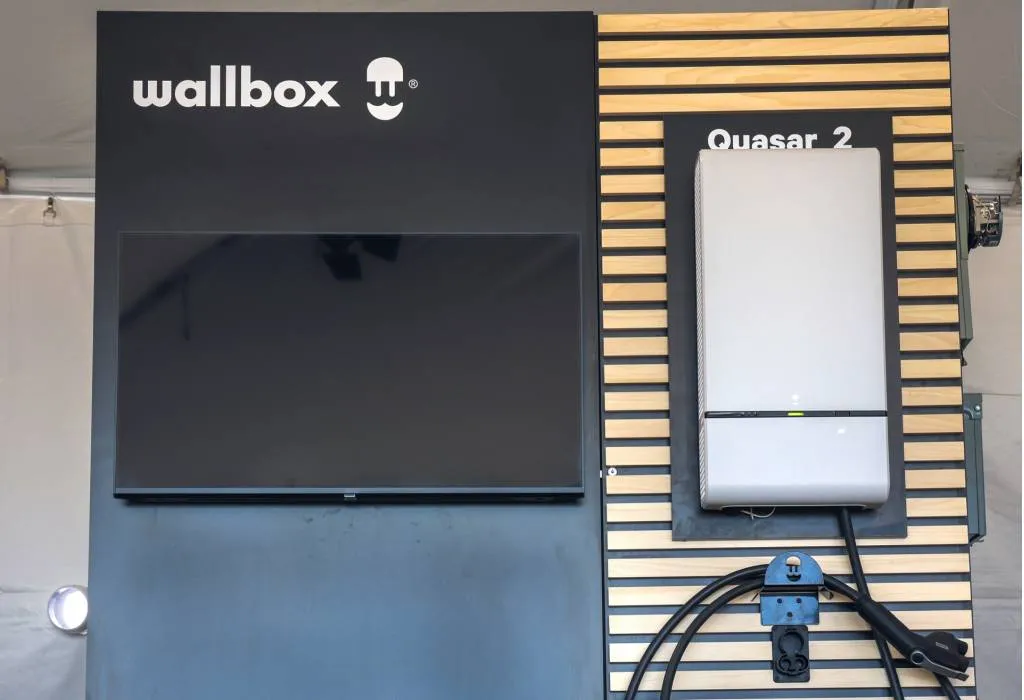
Wallbox Quasar 2 with Kia EV9
Leading edge of EV bidirectional charging
Currently there’s no single automaker-approved solution capable of providing bidirectional charging that can serve both in home-backup and vehicle-to-grid functionality. It’s functionality that some see as essential for making the most of big, resource-intensive EV battery packs while the vehicles are parked, but its an ability set that, oddly, Tesla has balked to offer as of yet.
In the U.S. market, there’s one automaker-approved solution that provides home backup energy—available for the F-150 Lightning and enabling automatic settings that will transition from the grid to power from the truck in the event that grid power goes out. And off at the other end of what also falls under the bidirectional-charging catchall, there’s one automaker-approved solution enabling owners the capability to supply energy back to the grid: Fermata Energy’s FE-15 system available for the Nissan Leaf.
When the Wallbox Quasar 2 becomes available in the first half of 2024, Wallbox and Kia will be serving up the potential for both of those capabilities.
Versus the original Quasar, which was designed for the CHAdeMO interface and is compatible with the Nissan Leaf in other markets, the Quasar 2 gets a new look but most importantly is compatible with CCS. The Quasar 2 permits bidirectional charging in a way that lets owners make full use of two questions: When to use your energy, and where to send it.
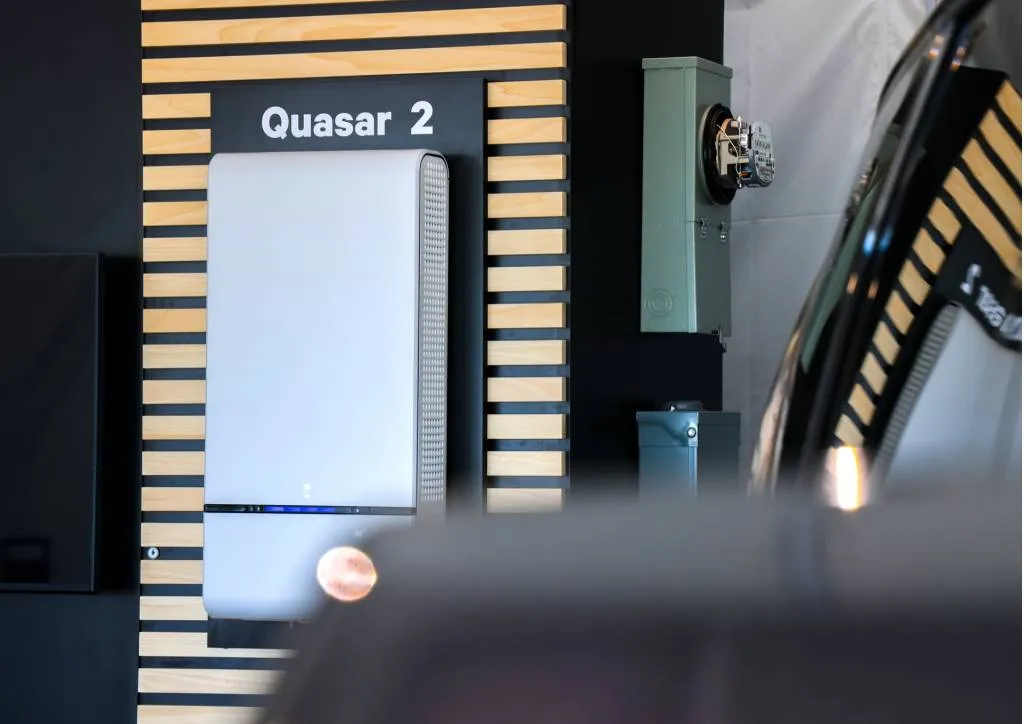
Wallbox Quasar 2 with Kia EV9
The EV9, not a Powerwall, backing up the home
The EV9 allows a Power Recovery Mode, such that owners might be able to support home power when there’s a power outage. The EV9’s battery pack might be able to support home power for four or more days given average household consumption, Wallbox says.
If the power goes out and the EV9 is plugged into the charger, the Quasar 2 can be set to automatically go into this mode, transferring the home from grid power to being powered by the EV.
According to Wallbox, the EV9 can hold up to 76 kwh or 100 kwh of energy, which is more than five times the amount of a 13.5-kwh Tesla Powerwall and enough to power the typical American home for up to four days.
In a demonstration at the Hyundai-Kia California Proving Grounds several weeks ago, Doug Alfaro, Wallbox’s chief business officer, showed how this will work. Technicians cut the power to a test “home grid” consisting of a few high-draw appliances. Then just seconds after a loud click, as the system switches over, it’s up and running on power from the EV9’s battery pack—indicated by a series of lights that let you know at quick glance. Yes, there’s an app, too.
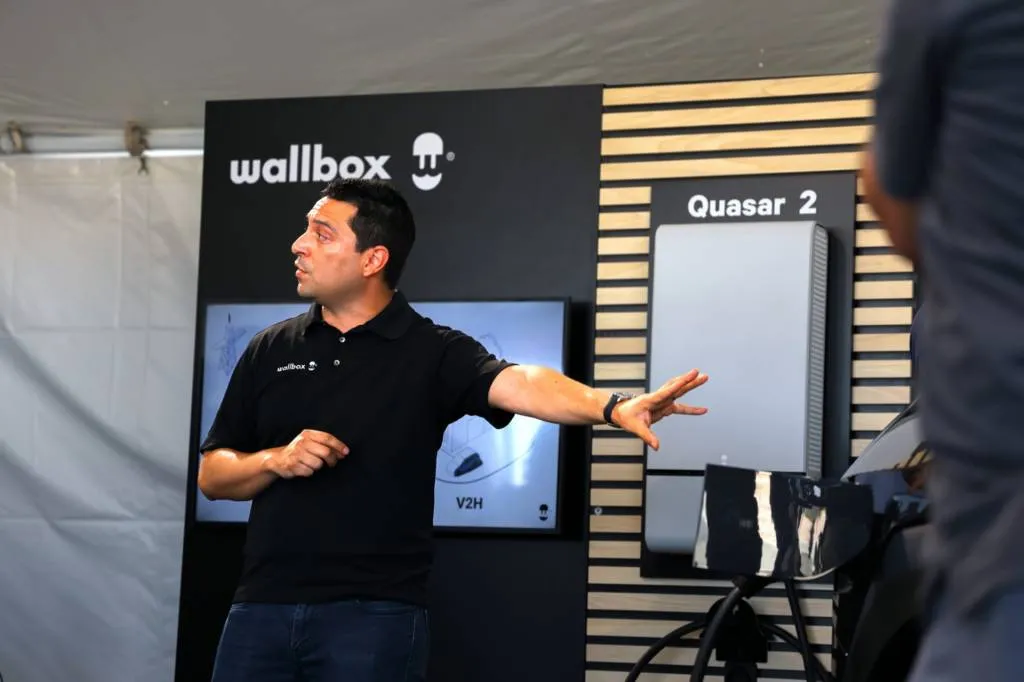
Wallbox Quasar 2 with Kia EV9
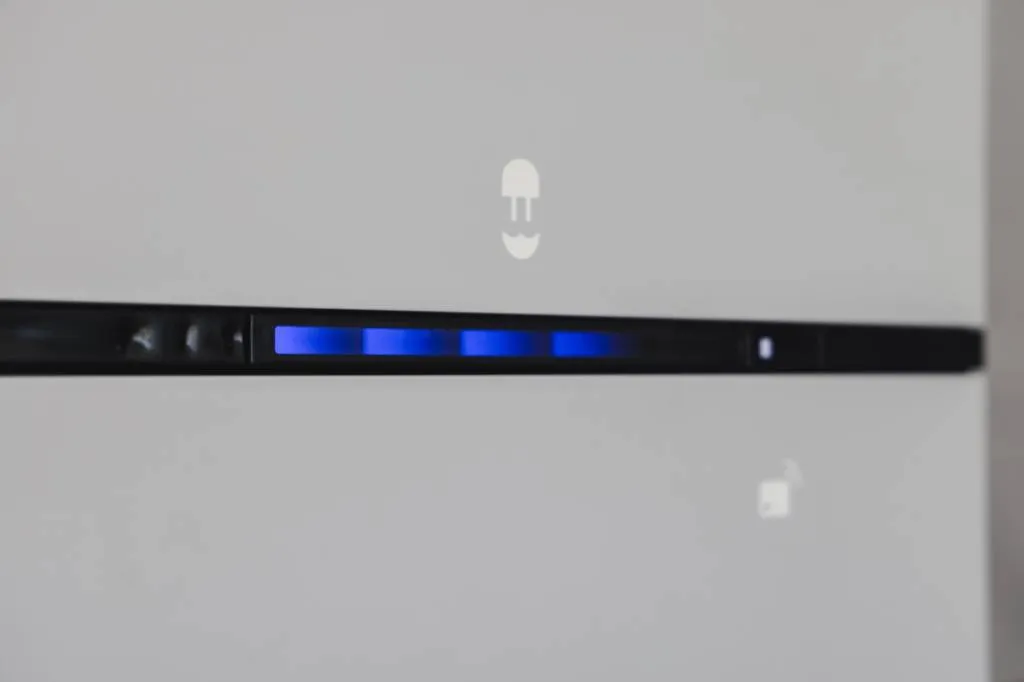
Wallbox Quasar 2 with Kia EV9
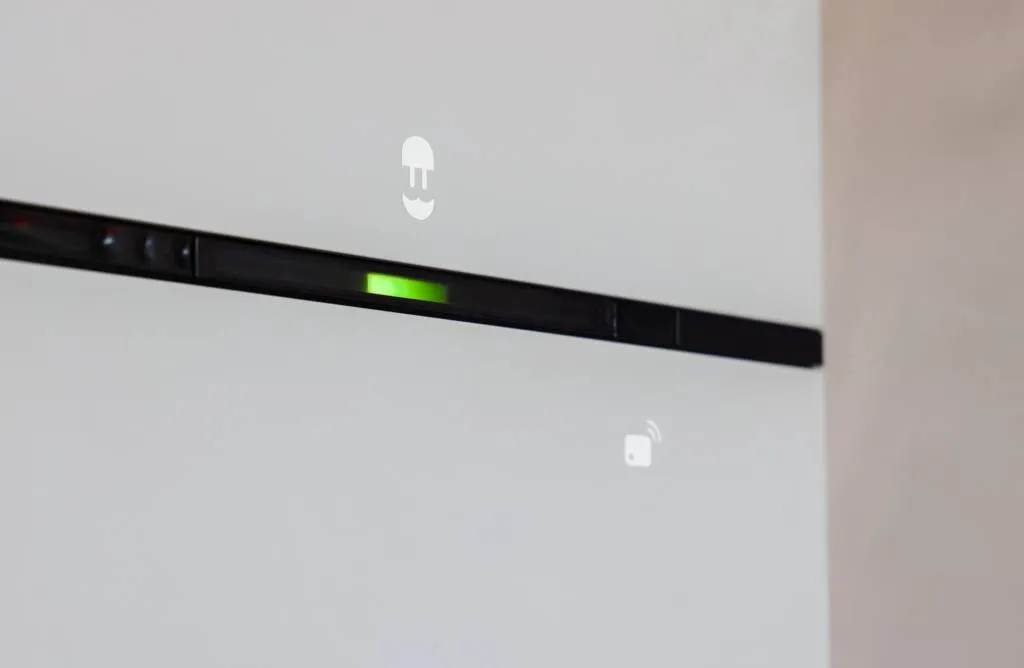
Wallbox Quasar 2 with Kia EV9
Using the EV9 battery to help the grid
The second functionality is V2H, in which during peak times the EV9 can supplement home electricity, then be charged during off-peak times. For such functionality, Quasar 2 is tied into the electrical panel and can actually read how much power is available, so the process is automatic.
The Quasar 2 cabinet gives a clear indication with LEDs when it’s charging or discharging, with LED lights, but there’s an app with all the depth and detail owners may seek.
This V2G functionality depends on your utility, of course, but when your utility can support such functionality you’ll be ready.
Wallbox further notes that the EV9 can be turned into a giant power bank for those with solar panels—storing excess energy in the EV during low usage and off-peak times, then allowing that energy to reduce or eliminate reliance on the grid during peak periods.
Back and forth, efficiently
The system can draw power from the vehicle at 11.5 kw, or 48 amps—the same rate that it can charge at via 240V AC (Level 2). But it’s worth underscoring that the give-and-take is done through the charge port via DC—with the Quasar 2 making the conversion from DC to AC.
Quasar converts AC to DC with about the same efficiency as the onboard charger, Wallbox says—97%+. It needs to be DC to utilize communication protocols and extract the energy.
Alfaro noted that the load on the battery pack is very low compared to higher demands like performance driving or road-trip DC fast-charging stops.
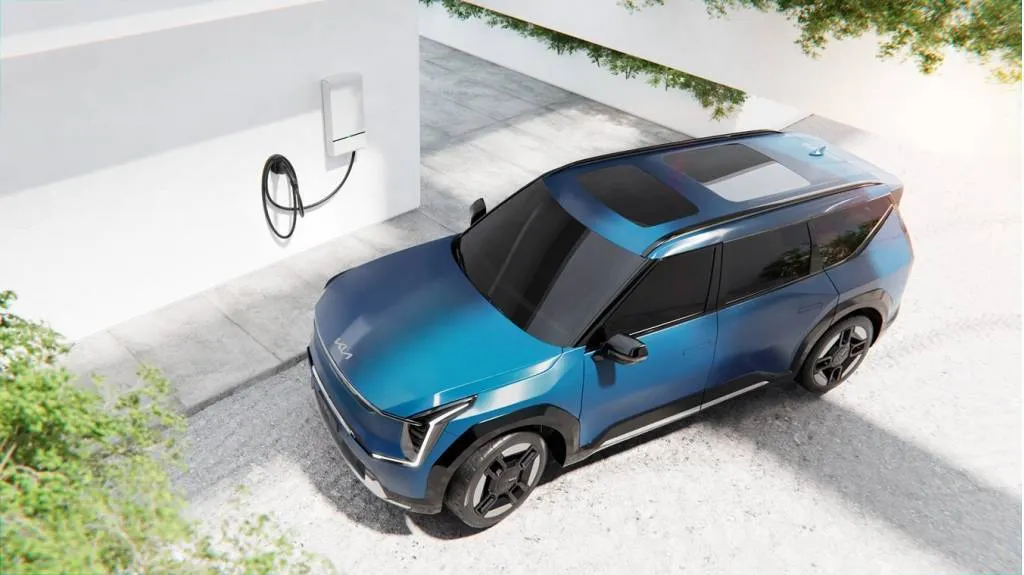
2024 Kia EV9
How Quasar 2 will be sold for EV9
As representatives of Wallbox and Kia underscored, it takes a joint effort to enable compatibility, via software, so the project to ensure that this ability set will work from day one is months if not years in the works.
The grid disconnect switch will be part of the kit for the EV9 at the start of Quasar 2 availability. While the V2X and V2G capabilities necessary to support this will be standard on all EV9 models, it will require not just the Quasar 2, but an entire kit that includes the grid disconnect switch.
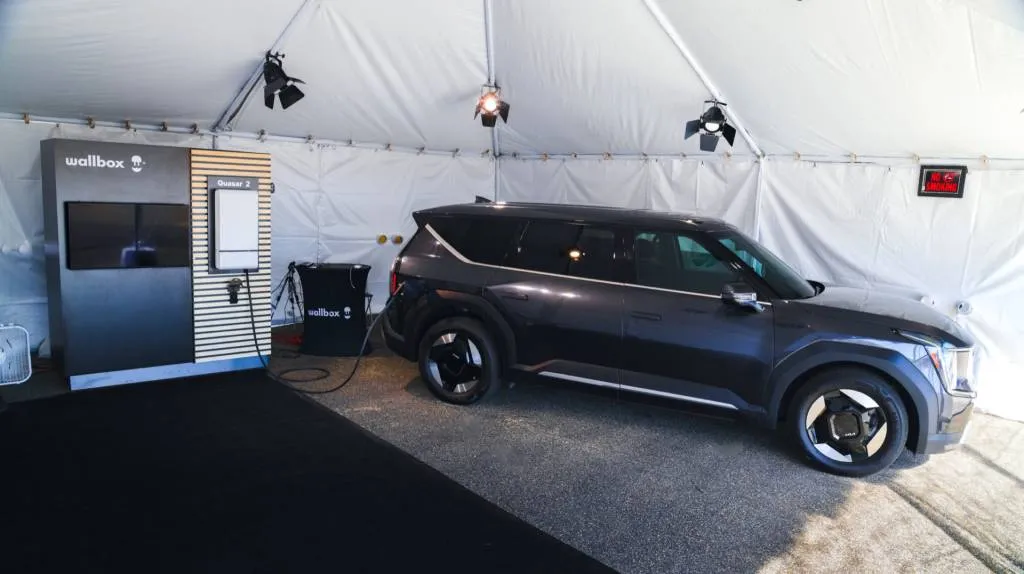
Wallbox Quasar 2 with Kia EV9
And that leads to what’s not yet disclosed for the system: its price. Kia suggests it will be cost-competitive with “the other system” that allows just home backup, with a wink and a nod to the F-150 Lightning system, while wrapping in the added potential value of grid functionality. That Ford system sums up to around $6,000 including installation.
For now, this is not an accessory sold through the Kia dealer network, so it can’t be financed with the new vehicle. The purchase will be made through Wallbox, with that company providing assistance and installation. Wallbox on Wednesday announced a partnership with Best Buy. While the announcement didn’t mention Quasar 2, Green Car Reports has reached out to see if this eases availability or installation.
The company claims that the Quasar 2 will be able to save users more than $1,000 annually when it’s combined with Demand Response programs and time-of-use utility rates. The peace of mind, along with the idea of making the most of the big battery pack—and having tech not yet offered by Tesla—may be easily worth that to many EV9 families.







